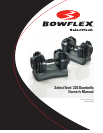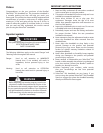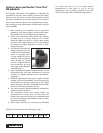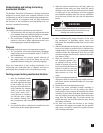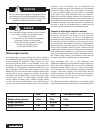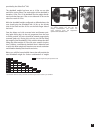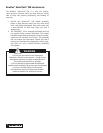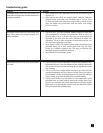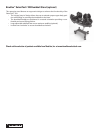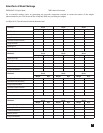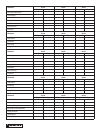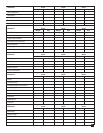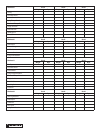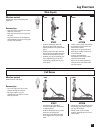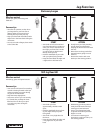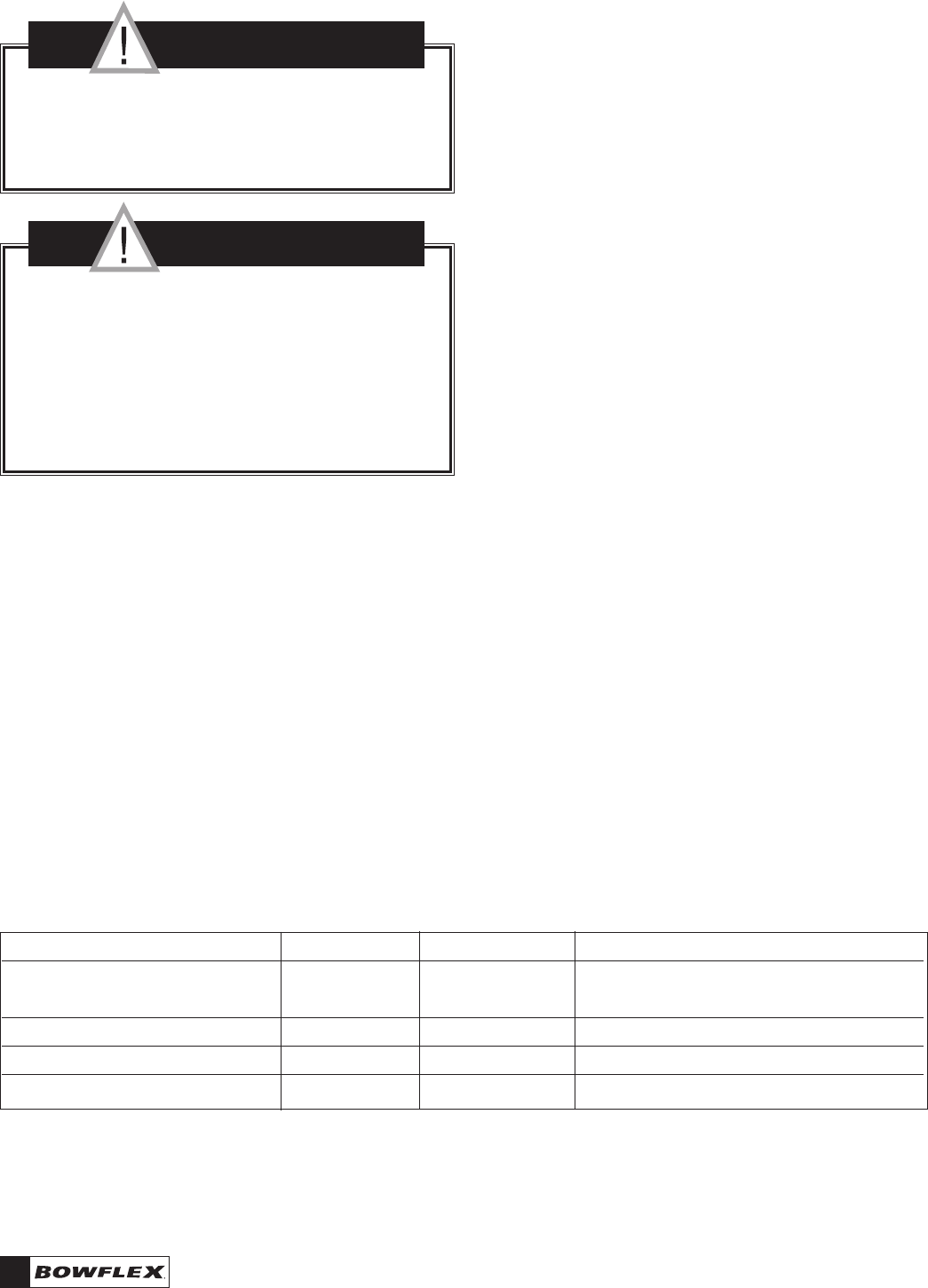
4
Do not intentionally engage the locking mechanism
and attempt to lift the entire dumbbell via the grip.
The dumbbell should only be lifted by using the lift
handles molded into the base assembly.
If the dumbbell locking mechanism fails to perform
in accordance with the test procedure above,
do the following things:
1. Discontinue use of the product immediately
until proper service can be provided.
2. Contact your Bowflex
®
retailer or contact
Nautilus, Inc. directly by phone
at 1-800-605-3369 for service.
Offset weight selection
As indicated above, proper selection for a given weight is
accomplished by selecting that weight number on both ends
of the dumbbell. For example: to select 20 lbs, one must
dial both adjustment knobs on the dumbbell to the num-
ber 20. By selecting the same number on both sides of the
dumbbell, you will replicate a common dumbbell, this is to
say, a balanced dumbbell with equal weight on both sides.
While this is the most common form of weight selection and
will be used in the vast majority of workouts, the Bowflex
®
SelectTech
™
220 dumbbell offers a useful and unique work-
out alternative known as offset weight selection. Offset
weight selection involves using a different weight setting
on one side of the dumbbell relative to the other. Doing so
can be a powerful muscle development tool during certain
workouts, such as the biceps curl. The SelectTech
™
220
functions exactly the same way whether you have selected
balanced or offset weights. The only exception is that when
you are using offset weights, you must return the dumbbell
to the base in the same orientation that you removed it.
When you have offset weight selection the combination of
weight plates selected will not be the same on both sides of
the dumbbell. You must therefore make certain to return the
dumbbell to the base in the same orientation in which it was
removed, in order for the weight plates to settle back into
the corresponding vacant slots in the dumbbell base.
Example of offset weight selection workout
Performed traditionally, dumbbell curls strengthen the
biceps, but do little for the forearm muscles that assist
in supination and pronation of the wrist. Supination and
pronation are terms describing a rotating motion of the wrist.
For example, turning a doorknob and turning your key in
your car’s ignition are examples of supination and pronation.
When using your right hand, turning a doorknob clockwise
would be the supination direction, while counter-clockwise
would be the pronation direction (directions are reversed for
left-handed motion). Whether you are training for a specific
sport, or just training to become stronger and improve activi-
ties of daily living, training your forearm muscles that are
involved in supination and pronation can be beneficial.
These dumbbells allow you to train differently than
traditional dumbbells. By using different weight settings on
either side of the dumbbells, you can use those supination/
pronation muscles during your curls. Using more weight
on the thumb side of the dumbbell will improve pronation
strength, while more weight on the little finger side will
improve supination strength. Not only will you be strength-
ening your biceps, but also you can become stronger in
activities involving rotation of the wrist!
The following example of a Biceps Curl using offset weight
is a good demonstration of the superior muscle development
DANGER
Side 1 Side 2 Total dumbbell weight
Weight settings selected 10 lbs 20 lbs 15 lbs
Weight Difference 10 lbs
Weight Distribution 5 lbs 10 lbs 7.5 lbs
Weight offset + 5 lbs
WARNING



